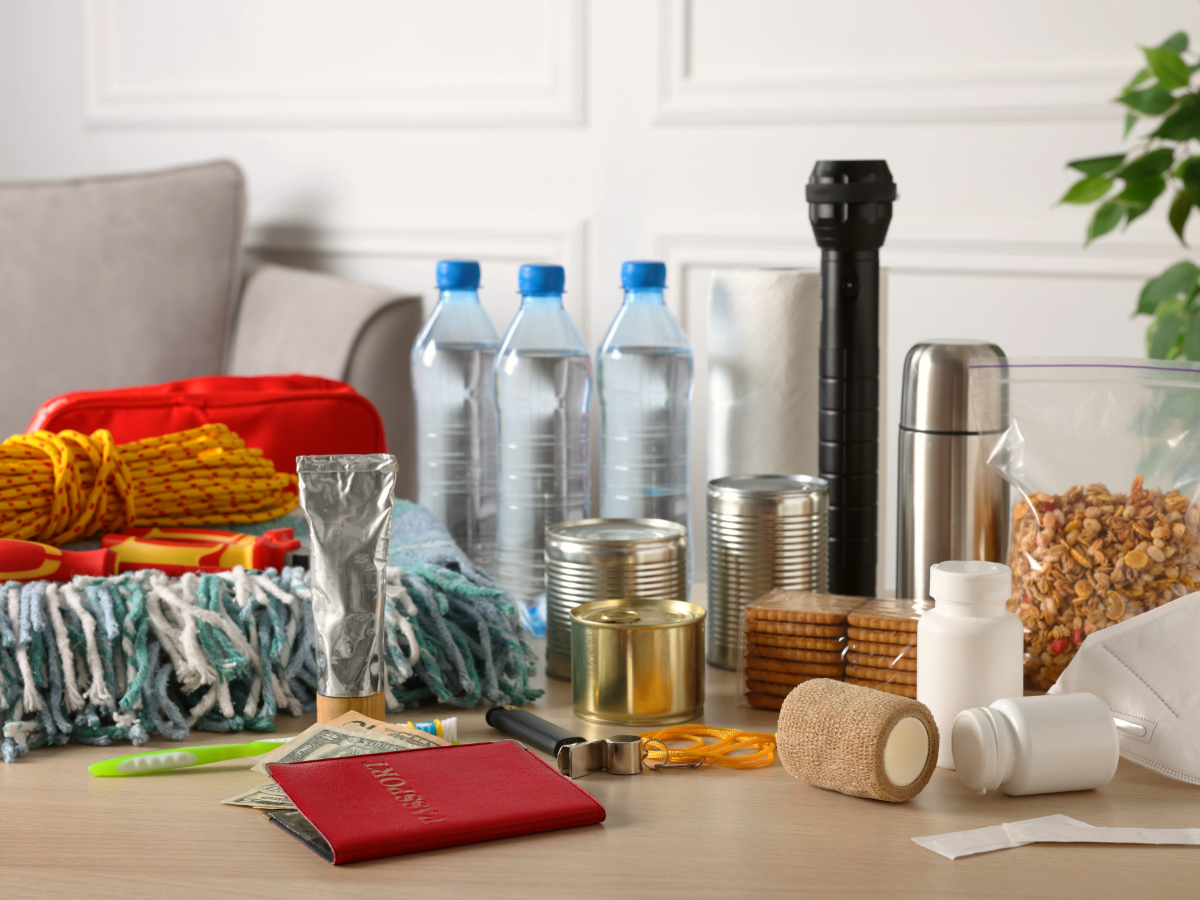Disasters can strike anywhere, and being prepared is key to keeping yourself and your family safe. Houston, for instance, is prone to flooding, hurricanes, and occasional tornadoes. As a newcomer settling into this city, familiarizing yourself with the types of emergencies in the area is crucial. This is why creating a home emergency kit is an important first step. An emergency kit provides essential supplies to help you survive for at least 72 hours (3 days) in case of an unexpected event that disrupts normal life.
Assemble Your Kit
There’s no one-size-fits-all emergency kit, but there are basic essentials everyone should have. A sturdy container, like a large plastic bin with a lid, is a great place to start. Next, gather the following items:
- Water: Aim for one gallon of water per person per day for at least three days. Don’t forget about your pets!
- Non-perishable Food: Choose easy-to-prepare foods that won’t spoil, such as canned goods, dried fruits and nuts, granola bars, and protein bars.
- First-aid Kit: A pre-assembled kit is a good option, but you can also build your own with bandages, antiseptic wipes, pain relievers, and any medications you take regularly.
- Flashlight: Include extra batteries as well.
- Battery-powered or Hand-crank Radio: Stay informed about weather updates and emergency instructions during a power outage. Cell phone service may also be disrupted during a disaster.
- Cash: ATMs and credit cards may not work during a disaster. Have some cash on hand for emergencies.
Tailor Your Kit for Houston
Once you have the basics covered, consider customizing your kit for the specific risks of Houston and your needs:
- Know Your Risks: Houston is prone to flooding. Consider including waterproof boots, sandbags, and pool noodles (for buoyancy) in your kit. Mosquitoes can be a nuisance after flooding or heavy rain, so insect repellent can be helpful.
- Hurricanes and Tropical Storms: Include hurricane shutters or plywood to board up windows and protect your home from wind damage. During hurricane season (June 1 to November 30), it’s wise to have a stock of non-perishable food and bottled water that can last for more than 72 hours in case of extended power outages or evacuation orders.
- Family Needs: Include any medications or personal care items for family members, as well as diapers and formula if you have young children.
- Sanitation and Hygiene: Pack items like hand sanitizer, hygiene wipes, and garbage bags to help maintain cleanliness, especially after a flood.
- Shelter: While a tent may not be useful during a hurricane, consider including heavy-duty rain ponchos and blankets in your kit.
- Documents: Keep copies of important documents like passports, birth certificates, and insurance policies in a waterproof container.
Remember
- Replace and Update: Regularly check your kit and replace expired items or update quantities as needed.
- Keep it Handy: Store your kit in a cool, dry, and easily accessible location on the highest level of your home in case of flooding. Everyone in the household should know where it is.
- Plan and Practice: Having a plan in place for different emergencies is essential. Talk to your family about how you will communicate and where you will meet if you get separated. Houston has a Houston Emergency Management website. Be sure to familiarize yourself with it. Practice your plan regularly, especially with young children.
By taking the time to prepare an emergency kit and discuss your plan with your family, you can ensure you’re ready to face whatever comes your way. Settling into a new city like Houston is exciting, and being prepared for emergencies adds a layer of security to your new beginning.




